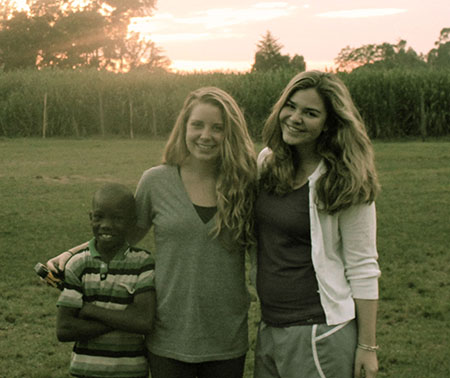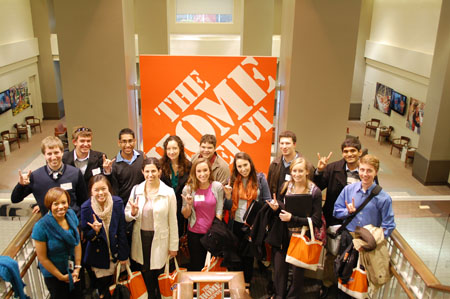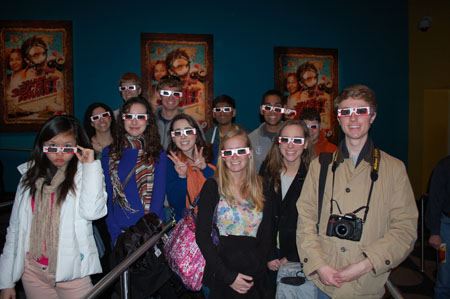Written by Robert Belanger
BHP Senior, Sara Hollis, recently accepted a position with DaVita in San Francisco as an analyst covering the healthcare industry. Healthcare is a passion of hers. Over her time at UT, Sara has been very involved with a group called the Wema Children’s Centre. Wema, which means “goodness” in Swahili, is an orphanage for children with HIV/AIDS in Bukembe, Kenya that houses over 160 children. Her work has greatly impacted the center, village, and associated school.
The center began in the summer of 2010 when a Harvard student, Laura D’Asaro, began working with the Highway Academy, a school located in Bukembe, and came up with the idea of starting an orphanage to support the growing number of orphans in the community. Sara and a high school friend, along with a few other Harvard students, traveled to Bukembe during early 2011 to help support the children’s center. While the first visit was exciting, it was clear that there was much that could be done to help the village. As the first non-governmental organization (NGO) to come in contact with the village, Sara and her associates had the challenge of assisting Wema in whatever they could, trying to establish it so that it could function in the group’s absence. One of the principal goals undertaken for the first trip was an HIV/AIDS screening and prevention program. Also, the group recognized the need for a computer to stay in contact with the school and orphanage directors. Sara says, “After our first visit, we left one of our MacBook computers with them so that they could be in touch with others and request aid from organizations. Before they were just sending letters and it wasn’t working because no one knew they were legitimate. While we were there the first time, we made a website for them to establish a public image for them. We knew we wanted to found an NGO so we could do legitimate fundraising and involve other students.”
The desire to increase her and others’ involvement with and awareness of the project grew. Besides starting an on-campus organization, UT Students for Wema, Sara has partnered with other organizations to affect change in the village. “It has almost been like a part-time job since I came back after my first trip during my sophomore year. It took a while for me to figure out how to get students involved. There were about 50 other student organizations on campus doing similar things, but they were all fragmented. We teamed up with Students for Clean Water to drill a well at the orphanage last semester, and that worked really well. It ended up costing around $50,000 and we were able to raise all of that through our work with the Students for Clean Water and through a corporate donation which came through Living Water International.” Since the beginning, it has been an effort that spanned geography. Students from UT, Harvard, Penn, MIT, and USC have worked on the project. Sara has been at the center of it all, recently working to establish 501(c)(3) status for the NGO and coordinating the completion of the water well.
Besides brining the village an established source of clean drinking water, the group has pursued several initiatives. One of these has been finding resources for the school to use to improve education for its students. Over the past winter break, Sara again traveled to Bukembe, this time brining over two dozen computers as well as books to establish a library. “The first computer helped them so much with getting aid from other organizations.” After the new computer lab was completed, “the teachers and students alike were so excited to try their hand at Microsoft Word, Excel, Powerpoint, and Gmail.” Other initiatives include starting a sponsor-a-child program, improving access to medical treatment, and identifying areas of growth for the center and school.
Overall, the experience for Sara has been special. “My involvement in this and communication with them has really put my life into perspective. It makes me really appreciate the education I have and be motivated to work hard, like they do.” And the experience is not a one-way street. “We all realized how much we have to learn from them, that the experience isn’t just about what we can do for them, but also what we can learn from them.” More information about the project can be found at http://wemachildrenscentre.org/, and Sara’s story about one of her trips can be found at http://sarahollis.blogspot.com/. View a slideshow of photos from her recent trip here.





